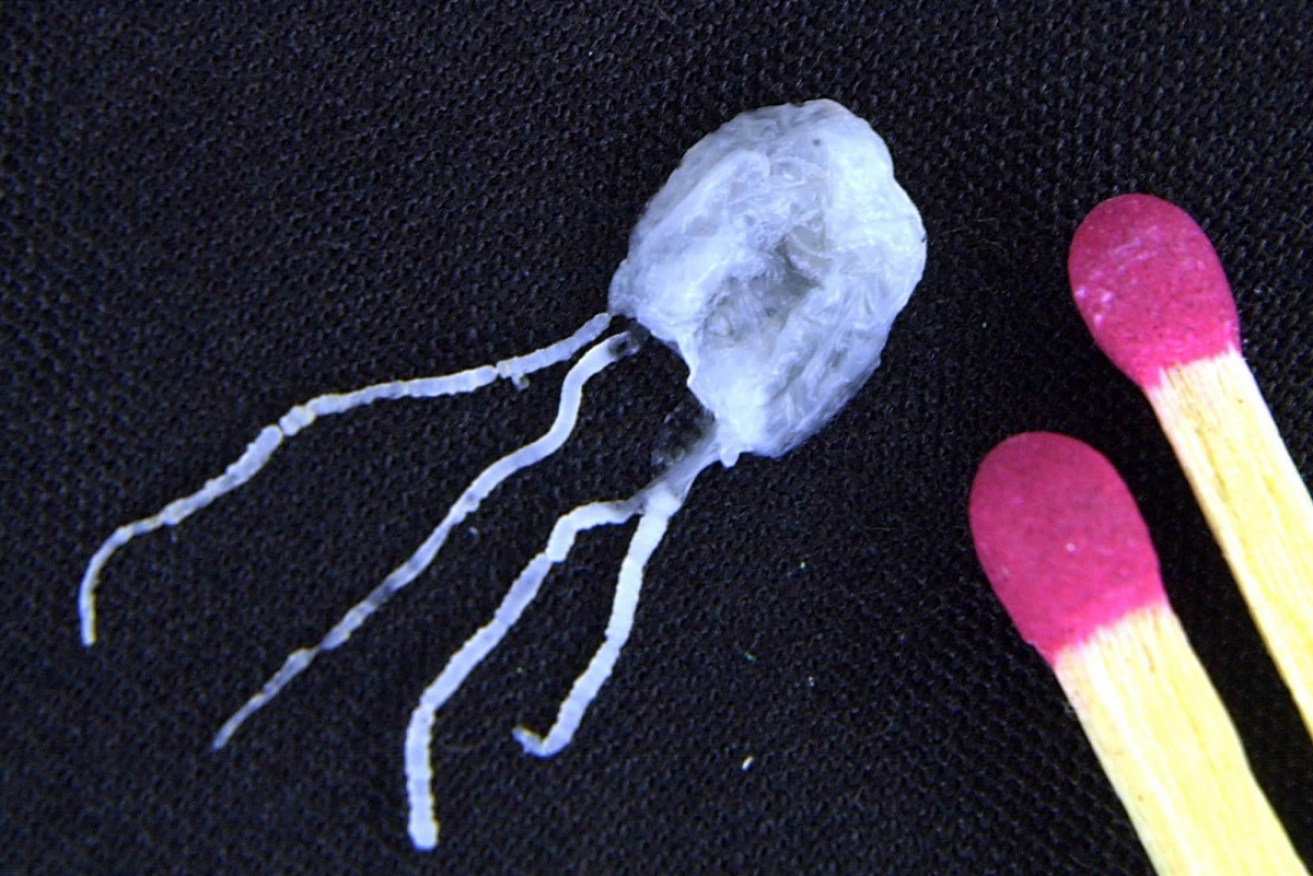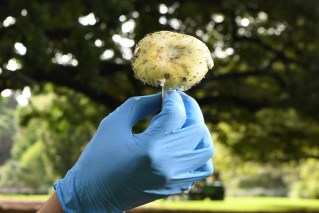Warming ocean sees deadly jellyfish on the move south


The Irukandji jellyfish is about two centimetres in diameter, making it difficult to see in water. Photo: AAP
The deadly Irukandji jellyfish is on the move south, offering further evidence Queensland’s famous beaches are firmly on the front line of climate change risk.
An Irukandji jellyfish has been found off the coast of Fraser Island for the second time in two years, prompting renewed fears warming waters will eventually see the deadly creature reach the Sunshine Coast.
It comes after a summer dominated by coral bleaching, a virulent Crown of Thorn outbreak on Swain Reefs off Yeppoon and this week’s horrific research indicating north Barrier Reef green turtle populations are at risk of collapse.
Researchers say rising ocean temperatures are breeding only female offspring, threatening the long-term future of the species.

A green sea turtle – most likely female. Photo: Camryn Allen/NOAA Fisheries
The Irukandji jellyfish danger prompted lifeguards to drag the beaches on the island’s west coast on Sunday.
There have been 10 suspected Irukandji stings on the western side of Fraser Island between December 22, 2016, and January 5 last year.
James Cook University professor Jamie Seymour said much was still unknown about the number and types of the Irukandji species on the Queensland coast.
“There’s not a huge chance of being stung, however there are specific places along the east coast of Australia and Queensland that you definitely do not want to swim because that’s where you’re going to get stung,” he said.
Professor Seymour previously said the species’ migration south needs to be taken more seriously, telling the ABC last year the jellyfish is “moving slowly but surely southwards”.
“The length of the season has increased from one to two months to almost six months,” he said.
It’s only a matter of time before they get from the southern end of Fraser Island to the Sunshine Coast and that’s when things will get interesting.”
Water sampling by researchers has shown the move south appears to be corresponding to the rising sea temperatures.
“We’ve seen a one to two degree temperature rise in the water off the coast in the southern side here and the animals have moved predictably with that,” Professor Seymour said.
Swimming on Fraser Island: take vinegar with you
Professor Seymour has described a sting from an Irukandji jellyfish as overwhelming.
“This is a 10 out of 10 pain that you are going to hang onto for probably six to 12 hours,” he said.
“There’s usually severe vomiting, nausea, stomach cramps and about 10 to 15 per cent of patients end up with cardiac problems. Linked with that is this feeling of impending doom where everything is going to go wrong and there’s nothing you can do to fix it.”
Surf Life Saving Queensland regional manager Craig Holden said beachgoers in the area should be extra vigilant.
“We’re urging everyone to stay out of the water entirely on that western side of the island while conditions are hot and humid,” he said.

Swimmers have been warned to be careful. Photo: AAP
“If anyone is stung on Fraser Island they should douse the area with vinegar as soon as possible and immediately call triple-0 to seek emergency medical assistance.
“We don’t want to cause widespread panic, but it is really important for people to exercise caution and put safety first at all times. This includes taking a bottle of vinegar with you if you are heading to the island, to be prepared to treat a sting.”
Mr Holden said SLSQ would continue to conduct daily stinger drags on the western side of Fraser Island, while informing campers and beachgoers in the area on the risks associated on entering the water and handing out marine stinger treatment information.
-with ABC








